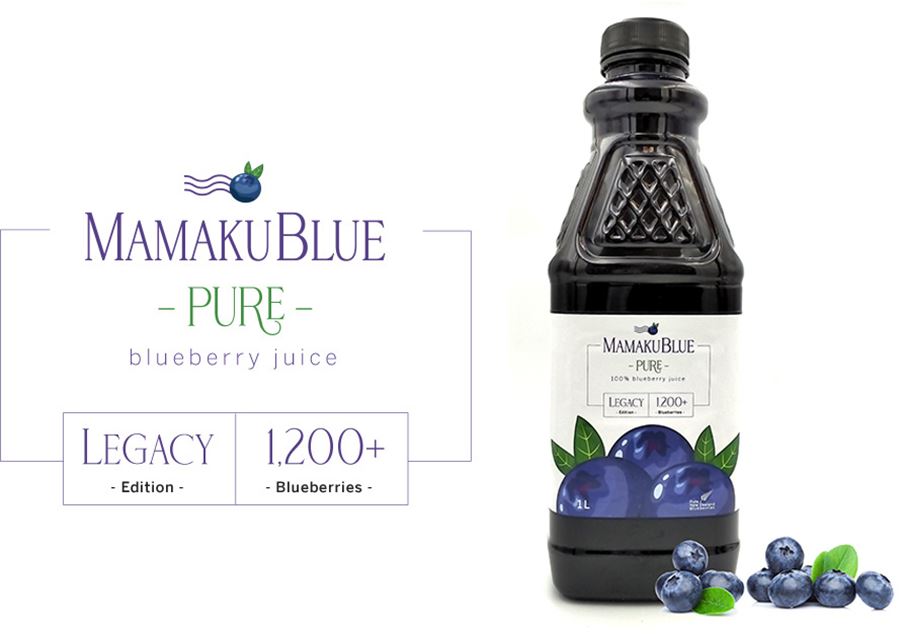Potential Health Benefits of Blueberries Blueberries are full of healthy antioxidants
Research conducted by Massey University’s Dr. Janyawat Vuthijumnon has found potential health benefits of blueberries.
Polyphenols, which are natural chemical compounds that protect plants from insects, mushrooms, diseases, amongst many other helpful features, are found in blueberries. Blueberries contain anthocyanins that are natural pigments responsible for giving blueberries their blue, purple, violet, and red colours. High antioxidant concentration is present in blueberries as measured by the oxygen radical absorbance capacity (ORAC) assay.
An antioxidant is a substance that reduces damage by oxygen. Antioxidants are present in vitamin C, vitamin E and vitamin A. Antioxidants are good for our health as it slows down age-related macular degeneration progression.

Dr Janyawat Vuthijumnonk, Massey University
Gain the benefits of natural vitamins through blueberries
The American Institute for Cancer Research charity found the following:
While vitamins, which are found in blueberries, do not provide energy like carbohydrates, fats, and proteins do, they are responsible for boosting immunity, strengthening bones, healing wounds, and assisting with obtaining energy from food and many other functions.
Quercetin, a type of polyphenol found in blueberries, has been found to have antioxidant activity and manganese, which has a range of biological activities such as reducing inflammation.
Blueberries are also an excellent source of vitamin K, which is responsible for blood coagulation (clotting). This is particularly useful for preventing excessive bleeding. Dietary fibre found in blueberries has the potential to reduce exposure to cancer-causing substances on cells, and friendly gut bacteria which helps protect colon cells by the short-chain fatty acids that it produces.
Daily blueberry consumption is a great way to get vitamins and minerals. If the body does not sufficient vitamins, you may start to feel lethargic, be more prone to infection, and could develop other serious complications.
Ellagitannins that are found in the polyphenols get converted into ellagic acid and then into urolithins. Once the blueberry is digested and these compounds are extracted, the compounds help project DNA from free radical damage. The accumulation of such damage may cause cells to die which could lead to diseases and is often the starting point of cancers. Pterostilbene in blueberries has been found to cause abnormal cells to self-destruct in the body, particularly in the pancreas, mouth, stomach, and lung tissue.
Blueberries Reduce the Risk of Heart Disease By 35% – Harvard Research
A study led by Dr. Eric Rimm, associate professor at the Harvard School of Public Health and Harvard Medical School, has shown benefits to eating blueberries.
Dr. Rimm’s team gathered data from 93,600 women, aged from 25 to 42 over 18 years. The findings show that women who ate more blueberries and strawberries were 34% less likely to have suffered a heart attack.
In terms of quantity, Rimm says, “The people with heart benefits had three or more servings of a half a cup of blueberries or strawberries each week”.
The publication states that “the study focused on young and middle-aged women. But the findings likely apply to everyone, including men.”

Dr. Eric Rimm, associate professor at the Harvard School of Public Health

NEW ZEALAND NATURE, MADE JUICE.
Keep your body and mind healthy with a shot of juice or a portion of blueberries daily.
Packed with antioxidants and the goodness you need to support a healthy immune system.
100% blueberry juice, 100% good for you.

DISCLAIMER - This information is not intended to diagnose or provide diagnostic or medical advice.
Please seek advice from a medical professional if you suffer from any symptoms that cause you concern and/or discomfort

